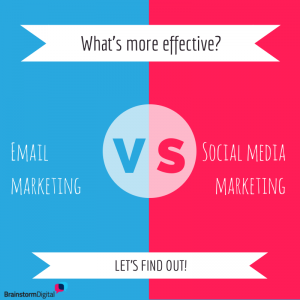Have Pharma marketers got it all wrong? Instead of trudging uneasily into the world of social media, should they be going back to the future – to email marketing?
I’m asking because, according to reports, one of the presentations that generated most excitement at the Eye for Pharma conference in Barcelona this week concerned the use of permission-based emails.
Monica Vidal of Eli Lilly showed how, in Belgium, Lilly’s reps asked doctors whether they wanted to engage further through various platforms, including email. Those who opted in received tailored messages, and the open rates were higher than 90% – a fairly astonishing figure!
She noted that according to surveys, doctors use smartphones to check their emails more than anything else, and that with the rise of mobiles, this will only become more important.
The facts about email marketing from the non-pharma world are incontrovertible. When it comes to actually converting people, email is far more effective than social media.
According to this McKinsey report from January 2014,
E-mail remains a significantly more effective way to acquire customers than social media—nearly 40 times that of Facebook and Twitter combined. [T]he rate at which e-mails prompt purchases is not only estimated to be at least three times that of social media, but the average order value is also 17 percent higher.
Why is this?
From the user’s point of view, more people still use email than use Facebook, Twitter etc. – and probably always will. Email, which comes to your own inbox, is somehow more “personal” and therefore more relevant and trustworthy. It is also harder to miss: while you may never see that tweet from four hours ago, you will always see that email from four hours ago. And you are less likely to “lose” an email which is still sitting in your inbox than a Facebook post from three days ago – making it easier to refer back to.
But hold on. Don’t divert your social media budget to email marketing quite yet.
Let’s ask instead – What is social media actually for?
Savvy social media marketers know that the most important result your digital presence can deliver to you is not engagement on Facebook. It’s not thousands of followers on Twitter. It’s not even a better reputation.
It’s an email list.
That’s right. The main goal of most social media programmes should be to get people to subscribe to your email, so that you can build up a much closer, more personal relationship with them.
In other words, the one reinforces the other.
 That’s why companies try to direct you from their Facebook page towards their blog or website – where they can capture your details. That is why they offer you free eBooks (ahem, here’s mine) – in exchange for your email address. That’s why blogs are inundated with pop-ups, asking you to register for email lists.
That’s why companies try to direct you from their Facebook page towards their blog or website – where they can capture your details. That is why they offer you free eBooks (ahem, here’s mine) – in exchange for your email address. That’s why blogs are inundated with pop-ups, asking you to register for email lists.
Companies want your email because, not only is it a more effective, personal way of communicating with their users, it has one major advantage over social media: it’s theirs. Facebook can suddenly change its rules, forcing companies to start paying to reach their audience. With email, they are in control.
But social media can be a – the! – major driver to that email list.
There are many ways this can be exploited by Pharma companies within regulations, to communicate to healthcare providers and members of the public who fill in appropriate opt-in form, and certainly by companies trying to sell to the Pharma industry.
This is yet another example of where different forms of marketing have to be coordinated, truly multi-channel – and not considered in a silo.
If you liked this article, you might enjoy:
- Dear Pharma companies: Stop talking about yourselves!
- Relax! It’s ok for Pharma to go slow on social media
- 10 ways to get Pharma companies on board with social media







